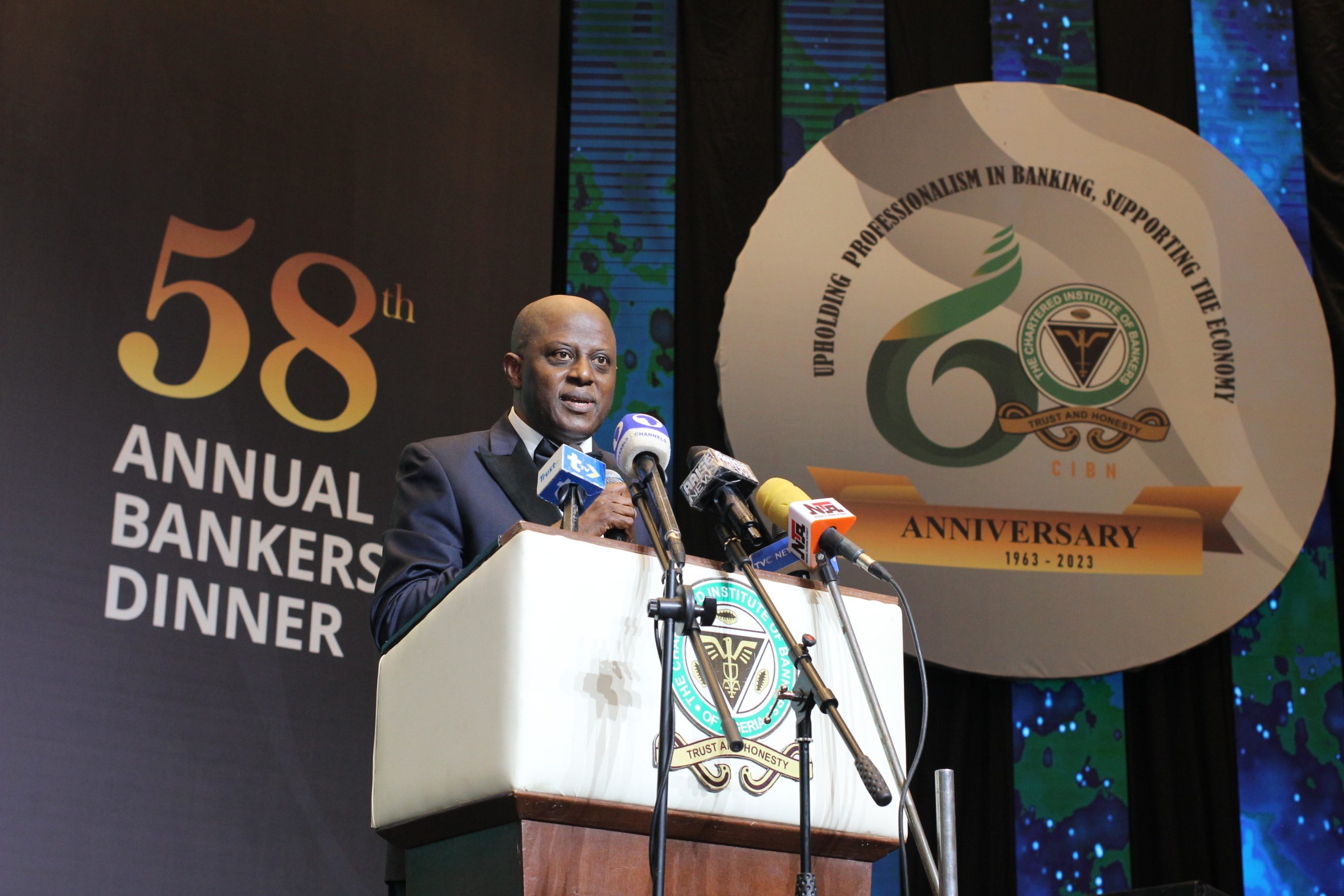By Chioma Obinagwam
Nigeria’s apex money authority, the Central Bank of Nigeria (CBN) has outlined reasons for the need to increase the capital base of banks in the country.
Confiance News gathered from the official X handle of the bank on Saturday.
According to the CBN governor, Dr Olayemi Cardoso, Nigerian banks were not well capitalised to meet the needs of the economy.
Cardoso, speaking in his first public speech at the 2023 Bankers Dinner on Friday night, stated that while there has been stability in the banking sector, banks in the country were not adequately capitalised to meet the need of a $1 trillion economy which the present government was aiming to achieve.
“Will Nigerian banks have sufficient capital relative to the finance system’s needs in servicing a one trillion dollar economy in the near future? In my opinion, the answer is no, unless we take action.
“Therefore, we must make tough decisions regarding capital adequacy. As a first step, the Central Bank will be directing banks to increase their capital”, he said.
The CBN governor emphasized the importance of technology in delivering financial services in addition to enhancing financial inclusion.
He further spoke on financial institutions that have breached their licences regarding the use of technology to facilitate payment. According to Cardoso, the apex bank has observed that some institutions were operating outside the approved activities.
“Any intentional or unintended non-compliance will be subject to sanctions as operators have the responsibility to ensure that they are licenced for the activity they undertake.
“As we conduct a comprehensive review of the licencing framework for payment services, we will engage in extensive consultations to engage a new regulatory and compliance framework that is suitable for the technology-driven payment services sector,” Cardoso said.
The CBN boss also weighed in on the 43 items previously restricted from accessing foreign exchange from the investor’s and exporters’ window.
Cardoso said, “During the period when the 43 items were restricted, there is a 51 percent increase in trade evasion by importers accessing the foreign exchange market resulting in a revenue drop of approximately $1.4 billion annually between 2015 and 2019.









Leave a comment